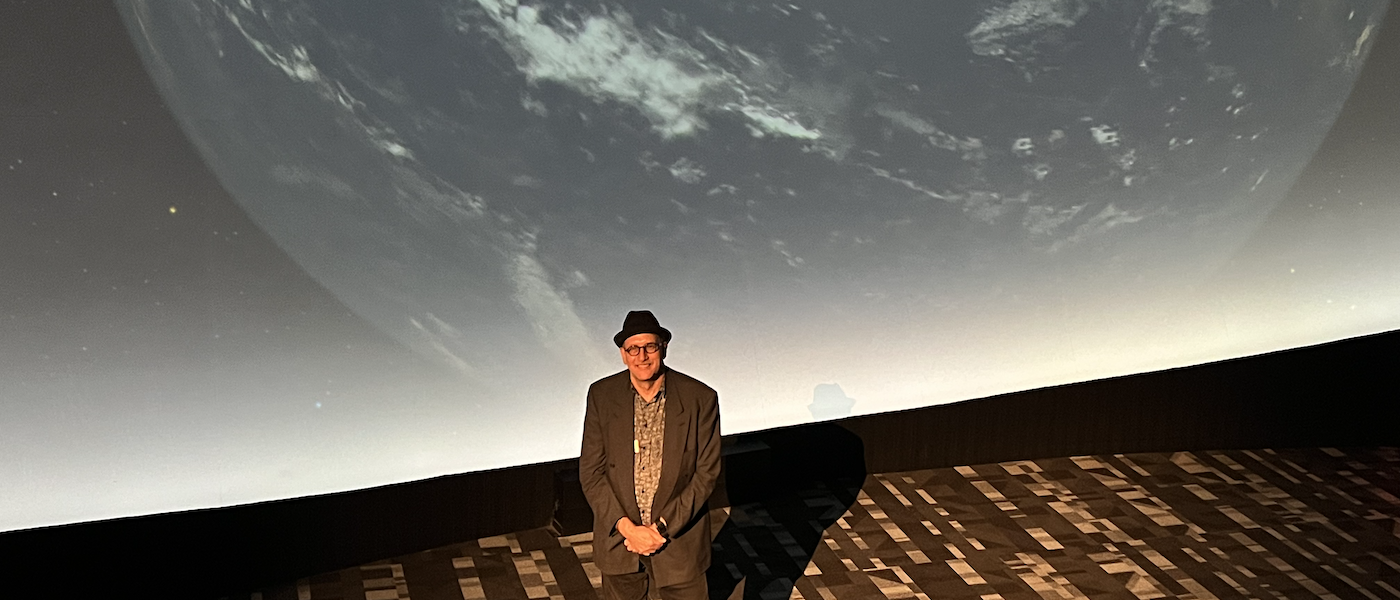Space Talk presentation explores what we can learn from climate change in the solar system
On June 1, 2023, Liberty Science Center hosted Dr. David Grinspoon, Senior Scientist at the Planetary Science Institute, for our latest Space Talk: “Climate Change in the Solar System.”
Earth is a constantly changing planet, going back to its formation around 4.5 billion years ago. Some of these changes are due to natural forces, and others – like climate change we have seen in recent decades – are due to human action. While we are constantly monitoring and studying our own planet, there are scientists like Dr. David Grinspoon who are looking to other planets in our solar system to better understand our Earth.
In his Space Talk, Dr. Grinspoon shared with us the evolution of Venus and Mars from planets that could have harbored life in the ancient past to the inhospitable worlds we see today. In the case of Venus, its close proximity to the Sun and an abundance of greenhouse gasses caused any water that would have been present to evaporate, leading to a planet with temperatures of over 850 °F.
Mars has had an almost opposite evolution, as the cooling of its interior layers caused volcanoes to die out, leading to an incredibly thin atmosphere unable to trap heat on the surface and a planet colder on average than Antarctica.
In addition to understanding the long term evolution of planets and their atmospheres, better understanding our neighboring planets can help us improve Earth today. For example, studying the atmosphere of Venus helped scientists piece together the puzzle of why the Earth’s ozone layer was depleting and led to large scale changes to reverse this damage.
Watch the full presentation below in 360 degrees:
Join us next month, on July 6, as we welcome Dr. Munazza Alam, postdoctoral researcher at the Carnegie Earth & Planets Laboratory. Dr. Alam will explore how the James Webb Space Telescope is helping us better understand planets outside the solar system. Click here to learn more and reserve your spot now.
